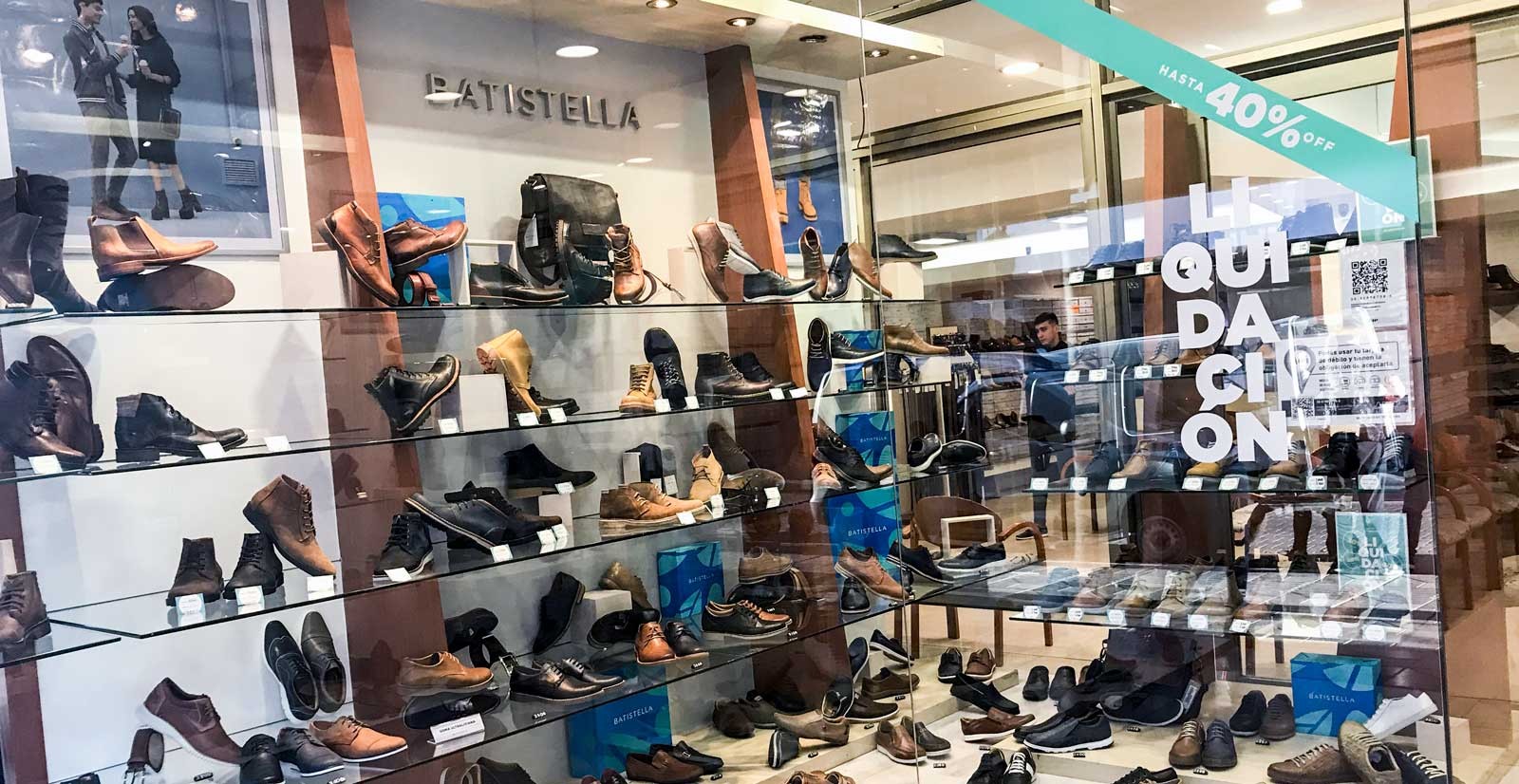


In its release at the end of March 2020, the CAME -Argentine Confederation of Medium-Sized Enterprises- which brings together a large number of commercial and industrial chambers and associations from all over the country, representing the bulk of SMEs, within the which are shops, industries and entities of the FOOTWEAR and MANUFACTURES sector, among others, made a harsh analysis of the situation of the sector in Argentina and warned of the possible collapse of many of them.
Due to the appearance of COVID-19, in March 2020 there were 19 days of normal activity and 12 days of quarantine. The quantities sold by retail stores in general fell 48.7% compared to March 2019, which represented an approximate loss of sales of 10,360 million pesos.
FOOTWEAR and LEATHER GOODS items fell 63.8% compared to March 2019.
Source: CAME
Although it acknowledges, in its first paragraphs, that the measures adopted by the government, in the face of the health crisis, were a relief for the sector, it noted that "the agony will continue." And that in the extension of the quarantine, SMEs need more support and differential measures "attentive to the impact of the social framework that involves the support of micro, small and medium-sized companies."
"While uncertainty is also extended and it is not known when the activities will return to normal operations, the payment chain broke, the blue or parallel dollar shot up, from $ 84.75 to touch $ 120, and with this an excessive increase in supplies and lack of reference prices”.
Taking into account that the salary weight in an SME represents on average 37.7% of its cost structure, with a much greater impact than in large companies, CAME claimed 100% of wage subsidy for companies of up to 40 employees.
"Only in March, due to the start of the quarantine, sales in supermarkets rose 23%, while in SMEs shops, losses amounted to $ 120,000 million pesos," the report relates. And it adds that numerous items are seriously affected, among which the trade in CLOTHING and FOOTWEAR stands out. Many points of sale do not have savings, liquidity, or income, therefore, the entity urged the owners to a solidary agreement of the rental days for the mandatory closing.
Referring to the subject, it says that “the number of rejected checks is still the thermometer that indicates that the payment chain is broken. After the opening of the clearing, the number of bounced checks tripled, generating a lack of control of around $ 80,000 million. It is that according to estimates, the stock of deferred checks negotiated by SMEs held by banks amounts to $ 220,000 million, of which between 35 and 40% expire in April. In addition, the portfolio securities that were not deposited and the invoices issued that should have been collected in this period are added”.
In summary, and in view of this scenario, CAME affirms that "all sectors are in a tight spot, while the financial system speculates with the times, despair and the refusal -with unusual requirements- to deliver credit assistance."
"For these reasons, the extension of the quarantine should be accompanied by immediate, new and wide measures to sustain small and medium-sized companies, mobilizers of 70% of the country's private employment," the statement concluded.
RELATED ARTICLE:
The quarantine retracted the production of FOOTWEAR and LEATHER GOODS